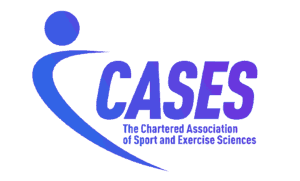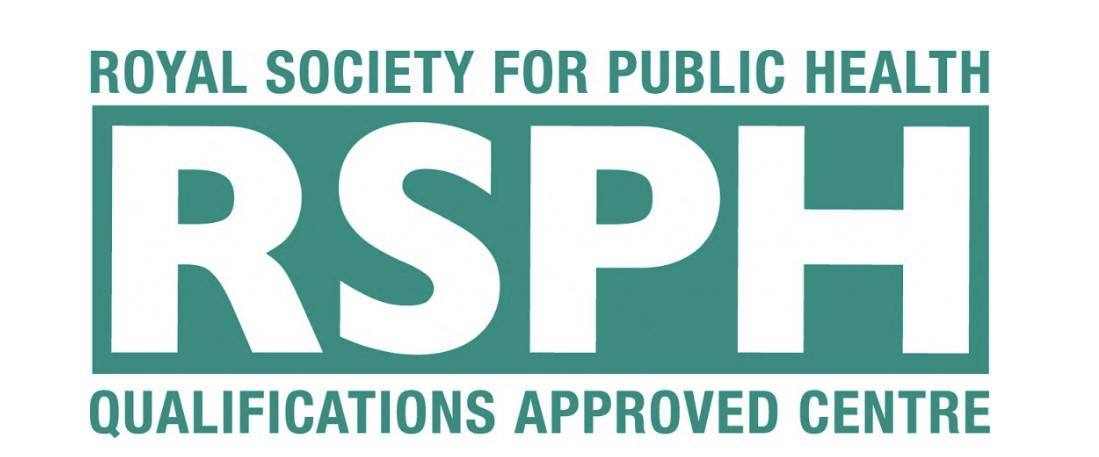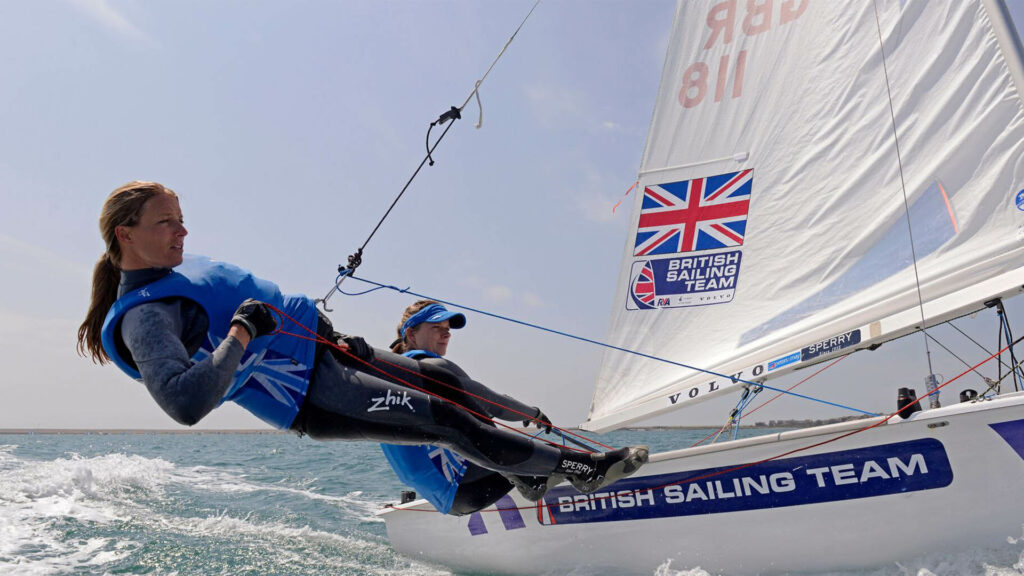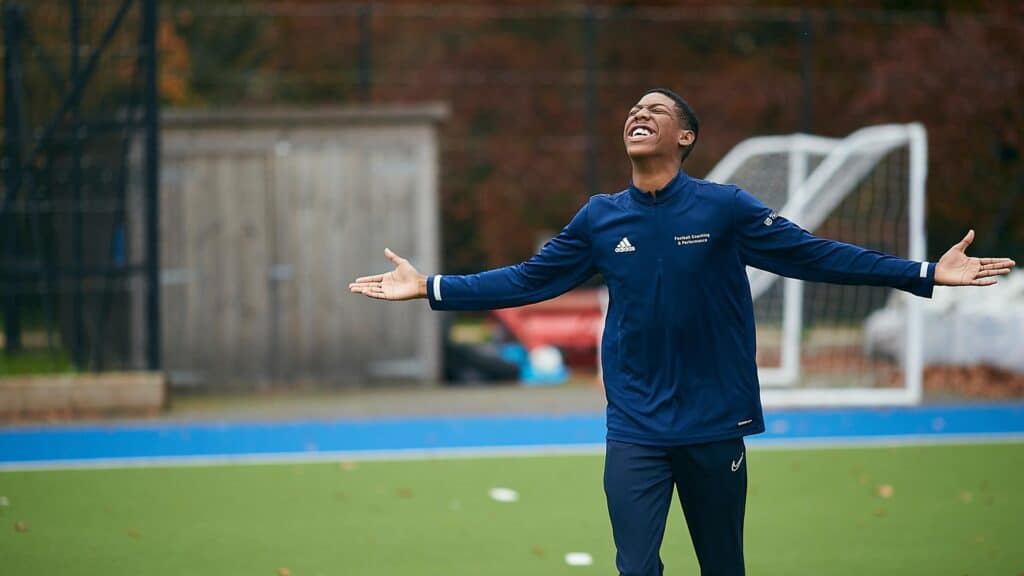Top 20
in the UK for Sport Science
Guardian University Guide 2025
3rd
in the UK for graduate prospects in Sports Science
Complete University Guide 2026
Top 20
in the UK for teaching on my course
National Student Survey 2024
Join us at one of our Open Days!
Saturday 11 October
Sunday 26 October
Saturday 22 November
Saturday 11 October
Sunday 26 October
Saturday 22 November
Our next Open Day is in:
Overview
Develop your knowledge of the science behind high-performance sailing
Developed as a result of a 20-year collaboration between internationally renowned sports scientists and the world-leading British Sailing Team, our BSc (Hons) Sport and Exercise Science (Performance Sailing) provides you with the skills and knowledge needed for an exciting career in high-performance sport.
National Student Survey 2023
Overall average positivity
'Teaching on my course'
Learning opportunities
CASES-endorsed course
Endorsed by The Chartered Association of Sport and Exercise Sciences (CASES), you can be sure that this course covers the necessary foundation of sport and exercise science knowledge, technical skills and professional development competencies required to succeed in the profession.

CIMPSA-endorsed course
This course is endorsed by the Chartered Institute for the Management of Sport and Physical Activity (CIMSPA), which shows that it provides the scientific theory and practical skills required to work as a sport and exercise scientist or health and exercise practitioner.

Qualification Approved Centre for Level 4 Award in Nutrition

Built for those ready for a career in competitive sailing
Informed by world-leading practitioners in the British Sailing Team, this degree has been developed specifically for sport and exercise science students with experience in competitive sailing who want to pursue a career in high performance sport, or for dual-career athletes who are studying alongside professional athletic training.
Gain a unique insight into the science of sailing
You will develop your knowledge and understanding of the science of sailing and Olympic sport, alongside bespoke modules tailored towards high-performance sailing, delivered by experts in their respective fields.
Study areas include:
- Biomechanics
- Nutrition
- Physiology
- Psychology
- Strength and conditioning.
Chartered Institute for the Management of Sport and Physical Activity (CIMSPA) education partner

Discover our specialist facilities and laboratories
Our range of dedicated sport and exercise science facilities support you to apply theory to practice and provide you with everything you need to succeed.
Specialist facilities include:
- Biomechanics labs
- Physiology labs
- Psychology labs
- Physiotherapy and Sports Injury Clinic
- Sports Performance and Rehabilitation Unit (SPRU)
- Environmental climate chamber.
Learn from active sport and exercise science practitioners
You will learn from our team of experienced applied practitioners who have worked with professional and Olympic sailing teams, meaning they bring their breadth of knowledge from the wider industry into the classroom.
Smaller class sizes for better learning
Our commitment to smaller class sizes means you won’t get lost in the crowd, and our teaching staff can provide more individualised support that fits you and your ambitions.
On this course you will:
- Develop your skills in high performance sailing.
- Study on a CASES and CIMSPA-endorsed course.
- Expand your knowledge of physiology, biomechanics and psychology.
- Feel more support from our teaching staff as they get to know you and your needs.
- Learn from experts who have worked with professional teams and Olympic athletes.
The Course
Learn the scientific theory and practical skills required to work within performance sailing
Bespoke sailing modules
You can choose to specialise in one of the core Sport and Exercise Science disciplines, alongside bespoke modules tailored towards high-performance sailing and delivered by experts in their respective fields.
Bespoke modules are run by members of the British Sailing Coaching Staff, as well as internationally renowned practitioners who are experts in their field.
Year One
Your first year introduces you to the fundamental aspects that underpin sport and exercise science as you explore the key elements of biomechanics, physiology and psychology.
Year Two
In your second year, you will begin to focus on more advanced aspects of sport and exercise science, as you examine nutrition, psychology and performance analysis.
In addition, you will have the opportunity to expand your knowledge of and skills in high-performance sailing through modules that explore subjects such as meteorology, extreme conditions and physics.
Year Three
In your third year, you will apply your newly-developed knowledge to the practical side of sports performance through the cycles of athletes and competition.
Alongside this, you will develop and use your research and data analysis skills as part of a final extended research project, which as acts as the culmination of your learning over the course of your degree.
Indicative modules
You will study a selection of core and optional modules during your degree. Each module is worth a particular number of credits and is delivered differently depending on the needs of the module.
Modules
Select a year
Investigating Sport, Exercise and Coaching
This module will provide you with the research skills necessary to support your learning within sport and exercise. It will introduce you to the philosophies that underpin different types of research, and you will learn basic techniques of qualitative and quantitative data collection and analysis.
Anatomy and Physiology
This module introduces you to the fundamental concepts of anatomy and human physiology, focusing on their application to human movement and performance in sport and physical activity.
You will explore the structure and function of key body systems, including the musculoskeletal, neurological, cardiovascular, and respiratory systems, and understand how they influence physical performance.
Specific attention is given to energy metabolism, examining how the body utilises energy during exercise across different intensities. This module also covers qualitative movement analysis and data collection for evaluating performance.
Practical sessions will allow you to apply anatomical and physiological concepts in real-world contexts, enhancing your understanding of how these systems interact during physical activity.
Sport and Exercise Psychology in Action
This module will help you understand how psychological principles can improve physical activity participation, well-being, and performance. You will study a range of cognitive and behavioural psychological factors in the context of sport and exercise.
You will also investigate a range of key issues related to physical activity, exercise, sport performance, and well-being and learn strategies to build psychological attributes and improve performance in sport and exercise.
Developing Physical Fitness
In this module, you will develop skills in health screening, needs analysis, and goal setting for diverse clients and athletes by integrating principles from gym instruction, personal training, and sports performance coaching.
Key topics include anatomy, physiology, biomechanics, and nutrition, alongside behaviour change techniques, injury prevention, and professional ethics. Additionally, the module explores business and marketing strategies for personal trainers.
You will gain practical experience in conducting health and fitness assessments, interpreting data to refine training programmes, and have the opportunity to obtain Chartered Institute for the Management of Sport and Physical Activity (CIMSPA) qualifications, meeting professional standards for gym instructor and personal trainer roles.
Professional Skills
The Professional Skills module is designed to support your transition to university study and help you develop key academic, personal and professional skills in your area of study.
Throughout the module, you will enhance your communication skills, digital literacy and academic skills to ensure you have the tools to succeed at university and beyond. Emphasis will be placed on developing skills relevant to your future career, including interpersonal skills, problem-solving and self-reflection.
The module includes the creation of a portfolio to track your progress, demonstrating how you’ve developed skills that are transferrable to your graduate career.
Introduction to Sport Biomechanics
This module introduces you to the basic concepts of biomechanics as they relate to human movement and performance in sport and exercise. You will be shown how to examine human movement and sporting technique, as well as the forces involved in creating such motion or causing injury.
Whilst linking to functional anatomy, concepts such as Newton’s laws of motion, ground reaction forces, momentum, energy, projectile motion, friction and fluid dynamics will be explored.
Practical work considers the general principles of biomechanics and relates them to experimental methodology, data analysis and statistical analysis for practical investigations with athletes.
Applied Meteorology
Many students can organise outdoor and adventure activities in simple contexts but few have the ability to do so in light of complex environmental factors.
This module aims to provide you with a basic knowledge of the earth’s atmosphere, the principles underlying its behaviour and the effects of weather on adventure environments.
There is also the opportunity to develop your pedagogical decision-making process in outdoor and adventure environments.
Children and Youth Sport
This module aims to give you an overview of a number of issues related to coaching children in sport and/or providing sports opportunities for them. The module examines the development of the young performer from a multidisciplinary perspective and aims to provide you with the opportunity to demonstrate your knowledge through appropriate assignments.
Cognitive Psychology for Sports Performance
Within the sporting domain, knowledge of cognitive psychology can promote efficient acquisition and effective performance of skill among athletes at all stages of skill development. This module critically examines the strengths and weaknesses of theory and research concerning the cognitive processes that underpin the acquisition and performance of skill.
Developing and Monitoring Physical Performance
This module aims to provide you with the skills and knowledge to design interventions for improving both health and skills-related physical fitness. You will develop the ability to complete a health screening and needs analysis on clients and athletes, establish goals, select appropriate methods of individual physical performance assessments and design interventions to improve physical performance.
Nutrition for the Prevention and Treatment of Illness and Disease
This module will examine the combined effects of nutrition and physical activity on health, with particular focus on prevalent diseases associated with these factors.
Topics covered will include:
- dietary guidelines and analysis
- measurement of energy
- macro- and micro-nutrient intake
- digestion, absorption and metabolism
- the role of micro-nutrients
- nutrition, prevalent diseases and special populations e.g. diabetics.
- obesity, eating disorders and food allergies.
Accreditation
The Royal Society for Public Health accredits this module, so you know the content of it is relevant and up to date.

Performance Analysis in Sport
The analysis undertaken could relate to technical, tactical and/or physical aspects of performance. The use of sports performance analysis is paramount in light of the limitations of human memory, such as the volume of event recall and subjectivity. The module aims to introduce you to the key concepts, skills and techniques associated to performance analysis, and outline its place in the scientific support of individuals and teams.
Performance Psychology
This module will introduce you to the key theories and concepts in performance psychology, examining theory and research into a range of factors (e.g., confidence, motivation, emotional regulation) that have been proposed to contribute to performance in sport and other achievement domains.
The module content will seek to develop understanding of the importance of these concepts for performance, their determinants and how to change them.
Physics of Sailing
This module extends your knowledge and practical skills in the application of engineering and biomechanics specific to sailing, with an emphasis on equipment and the environment. You will build an understanding of the science underpinning technical factors affecting sailing performance. In the first instance, you will be provided with the theoretical aspects of equipment and practical experiences on ways you can use technology to assess and evaluate sailing performance to gain improvements.
Project Management
This module aims to equip you with the tools and skills necessary to manage sports projects effectively and to demonstrate the importance of following a prescribed project management methodology. You will explore the concepts of project management in a practical way including effective scoping, planning, resource allocation, risk and issue management, project monitoring, reporting and review.
Researching Sport, Exercise & Health
You will further develop your skills in research methods and data analysis, with a broad focus on analysis procedures including the qualitative method of interviewing and quantitative methods of analysis of variance, correlation and linear regression. These methods are commonly used procedures in the sport, exercise and health sciences, and understanding of these will also provide a solid foundation for understanding more advanced research methods that you may learn in your future work including research projects or postgraduate study.
Sport and Exercise in Extreme Environments
This module aims to examine the physiological challenge of performing in extreme and hostile environments and to examine how the human can exercise, maintain homeostasis and survive.
It will explore the theoretical limits of human performance, looking to identify mechanisms of physiological acclimatisation and adaptation.
You will consider how this may be used to increase sporting performance and maximise safety e.g. competitions such as the Everest Marathon and Marathon Des Sables.
Advanced Biomechanics
This module aims to allow you to develop your conceptual biomechanics knowledge, knowledge of current practice and independent practical skills. It gives the opportunity to follow interests within the field that may have been stimulated by either the third year biomechanics techniques module, or by areas you have come across in the course of your independent project work and which you would like to investigate further. It aims to develop your independence in the laboratory.
Applied Performance Planning
This module enables you to develop and execute a performance plan that outlines the specifics of a sailing campaign. You are expected to develop the plan using What it Takes to Win (WITTW) and ‘performance backward’ planning techniques, identify a time-bound plan for execution, include the structure for periodic review processes and define milestone markers for assessing progression.
Applied Sport Psychology: Delivering Mental Strategies
Traditionally, sport psychologists have advocated the use of numerous mental training strategies that are purported to enhance the cognitive, affective and behavioural states of the performers that they work with. This module provides you with an understanding of the efficacy of these strategies, to provide opportunities to deliver these mental strategies and to reflect on the delivery of these strategies.
Extended Research Project
The research project provides an opportunity to apply appropriate knowledge, concepts, techniques and research methods of Sport and Exercise Sciences to an extensive and in-depth study of a particular question or problem related to sport or exercise science.
This module aims to foster a detailed understanding of the processes to undertake a significant research project, and marks the culmination of your learning experience. The study will enable you to produce a written research report.
Group Dynamics in Sport
This module aims to examine and evaluate current knowledge of sport group productivity and functioning and evaluates current practice in developing and increasing the effectiveness of group functioning. It is important to have an understanding of group dynamics due to the potential impact that groups can have on an individual’s performance, life satisfaction and psychological wellbeing.
Nutrition for Sports Performance, Physical Development and Health
Sports performance and the development of athletic ability relies on the individual being in peak health and having the correct nutrition support to fuel training adaptation and exercise performance. This module aims to examine the ways in which dietary intake influences energy metabolism, recovery of skeletal muscle after exercise, exercise performance, training adaptation, injury risk and immunity.
Planning and Monitoring of Training and Performance
A focus on planning and monitoring training of athletes and how a programme of physiological support can be used to enhance performance.
You will engage in current literature identifying the physiological demands of the athletes chosen sport, key measures of physical fitness and how we can enhance them.
An athlete’s ability to focus on training to gain maximal physiological adaptations, and relax in competition, can represent the difference in making the podium or winning major tournaments.
Work Placement in Sport and Exercise
This module offers an opportunity to complete a unit of directed study incorporating a work placement of 105 hours (three weeks) in a sport and exercise environment. This placement can take place in a wide range of environments including sports clubs, schools, colleges, private companies, clinical settings or within the community. The focus of the work placement should be relevant to your needs, the programme of study you are taking and career aspirations.
Teaching and Assessment
Benefit from innovative teaching methods that focus on practice
Smaller class sizes for better learning
You will build your subject knowledge and practical experience through lectures, workshops and tutorials in small classes, which means our expert teaching staff really get to know you and what support you need.
Teaching
Our team of principal lecturers ensure innovation, enthusiasm and expertise combine to deliver the excellent standards that give our institution its high reputation.
When you come to Chichester, you will join a community of students and lecturers working in partnership to ensure that your learning experience reflects best practice and embraces the opportunities presented by new, interactive technologies.
Some modules will be delivered at the High Performance Sailing Centre in Portland, thus enabling access to experts delivering excellent performance programmes alongside world-class sailing facilities.
Many sessions will require you to have completed some preparatory work and you will also be given structured follow-up work after a session to further progress your learning, often reading or an individual/group task. As you progress through your degree you will be expected to take more and more ownership over your learning and development, directing your study into areas of most interest to you.
Find supportive staff ready to help you reach your goals
Modules are assessed at every stage of the course, offering cumulative assessment of your progress, which means you can monitor your own progress throughout your degree and look to discuss and plan your development with your lecturers throughout the course.
Where appropriate, special arrangements can be made for students with an identified need/needs.
Assessment
Our course includes a mix of assessments, so that you may develop a wide range of transferable skills.
- Essays
- Examinations
- Portfolios
- Practical assessments
- Lab reports
- Oral presentations.
Facilities
Discover a wide range of excellent sporting facilities that support your learning
Sports laboratories
We have four specialist psychology labs including a virtual reality reader, brain imaging unit and an observation suite.
Sports injury clinic
Sports Therapy students use our specialist injury clinics these spaces for practical sessions and run a practice.
Tudor Hale Centre for Sport
Our world-class Tudor Hale Centre for Sport acts as the focus for sports science, therapy and physiology.
Placement partners
We have developed strong connections with our partners to provide you with work placement opportunities.
Sports hall
Our specialist sports hall can be used for a wide range of indoor sports, including basketball, netball, badminton and volleyball.
Specialist outdoor sports pitches
Alongside our grass football and rugby pitches, we also have our International Hockey Federation compliant floodlit astro turf.
Fitness suite
We offer a variety of cardio, resistance and weight equipment, with a dedicated strength and conditioning room.
Sports Dome
The Sports Dome is a large indoor facility which can be used for sports such as cricket, football, hockey and many more.
Experience
Join our close student community and fit into our supportive environment
Close community
Our commitment to a friendly and close-knit student community contributes to a high degree of success for our graduates.
Expert staff
Learn from experienced sport and exercise psychology specialists here to support you throughout your degree.
Placement partners
We have developed strong connections with our partners to provide you with work placement opportunities.
Learning Resource Centre
The Learning Resource Centre (LRC) contains the library, a café, IT/teaching rooms and the Support and Information Zone (SIZ).
Library
Our campus library holds more than 200,000 books and over 500,000 eBooks.
Subject specific librarians
If you have difficulty finding materials for an essay, seminar, or project, our subject librarians will be happy to help.
Placement Opportunities
Utilise our extensive professional networks to support your learning
In your final year, you will have the option to complete a placement that will give you the opportunity to further develop transferable skills which will make you more employable.
There are many placement opportunities depending on your field of interest and career aspirations and whether or not you would like to progress to a postgraduate degree, including our world-renowned research and consultancy groups.
Previous students have undertaken placements with:
- uCHAMP (in collaboration with St Richard’s Hospital) – University of Chichester Health Awareness and Maintenance Programme
- OPRG – Occupational Performance Research Group
- SPRU – Sports Performance Rehabilitation Unit
- British Sailing Team
- Southsea Rowing Club.
Whilst on placement, students have shadowed professionals such as:
- Physiological support services to athletes
- Performance analyst
- Cardiac and Respiratory Rehabilitation Exercise Practitioner
- Applied performance scientist with British Sailing Team
- Nutritional adviser supporting the bariatric surgery team at St Richard’s Hospital
- Occupational Performance Physiologist.
Industry links
Depending on the degree pathway you choose, we have links with the British Sailing Team, English Institute of Sport and the NHS pulmonary and bariatric team at St Richard’s Hospital, Chichester.
We also have links to a number of amateur and professional sports teams where our students work as performance analysts.
Dedicated placement coordinator
Our Sport courses have a dedicated placement coordinator who is available to assist students and has a network of contacts in local clubs and schools.
Our students are from all over the UK, with the majority from the South and South East of England, and a few students from overseas. Many students find work placements in their hometowns, as well as local opportunities in Sussex.
You will need to ensure you have all the necessary documentation in place before you start your placement. Some courses will insist that you complete a DBS check on entry to the course and others will require you to complete a check once you have started.
Please check that you have completed all necessary documentation before commencing your placement.
Study Abroad
Explore the opportunity to study part of your course abroad
As a student at the University of Chichester, you can explore opportunities to study abroad during your studies to enrich your educational experiences.
It’s a chance to broaden your horizons, a great opportunity to meet new people, undertake further travelling and to immerse yourself within a new culture.
You will be fully supported throughout the process to help find the right destination and institution for you and your course. We can take you through everything that you will need to consider, from visas to financial support, to ensure you get the best out of your time studying abroad.
Careers
Gain the skills and knowledge you need for a successful career
As well as supporting a career in sailing as a performer, coach or scientist, we also understand the importance of ensuring that you have the knowledge, skills and experience to compete successfully in today’s challenging jobs market.
Typical careers include:
- Performer, coach or scientist in sailing
- Fitness consultant
- Athletic trainer
- Sports psychologist
- Sports science support personnel
- Sports equipment consultant
- Health promotion
- Exercise prescription on GP referral schemes
Further study
We offer postgraduate research programmes (MPhil/PhD) across the field of sport disciplines.
Supervision is offered by a strong, research-active team with a range of expertise. Our research interests stem from applied experience to deliver ‘real world’ meaningful results.
University of Chichester alumni who have completed a full undergraduate degree at the University will receive a 15% discount on their postgraduate fees.
Gifted Athlete Support Programme
Supporting athletes with their studies and sporting ambitions
The University’s Gifted Athlete Support Programme (GASP) helps students combine academic study with sport by offering support to compete at the highest level.
Our student athletes will have access to our experts in sport coaching, exercise physiology, biomechanics, strength and conditioning, performance analysis, sport nutrition, sport psychology, sport therapy or physiotherapy and receive:
- Financial support*
- Fitness Suite access at the Tudor Hale Centre for Sport
- Administrative support from SU Sport
- GASPbranded kit.
* Level of financial support dependent upon level of achievement in sport.
Course Costs
Course Fees 2025/26
UK fee
International fee
EU/EEA Fee Reduction Scholarship
EU/EEA students automatically pay the equivalent of UK fees via the EU/EEA Fee Reduction Scholarship
For further details about fees, please see our Tuition Fees page.
For further details about international scholarships, please see our Scholarships page.
To find out about any additional costs on this course, please see our Additional Costs page.
Entry Requirements
Applying through Clearing
We know that you are so much more than your grades, which is why we take your aspirations, passion and personality into account. Through Clearing, we’re taking a flexible approach. Even if your grades are a little different from those advertised, please contact us – we’ll consider every application individually.
UCAS
A Levels
BTEC
GCSEs
IELTS
IB
Access to HE Diploma
Contextual offers
We believe everyone deserves an equal opportunity to pursue higher education, regardless of their background.
When we receive your application we consider your personal circumstances and the factors surrounding your achievements to see if you are eligible for a contextual offer. This is an offer with a reduced entry tariff – typically the equivalent of 16 fewer UCAS points (two A-level grades).
Find out more about our contextual offers.






